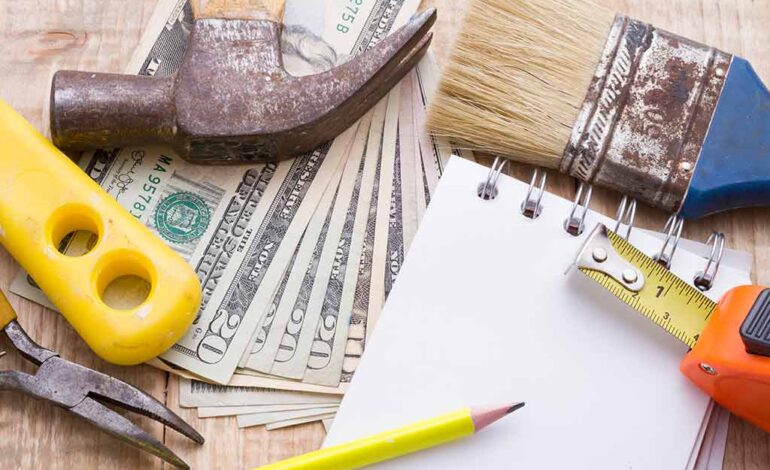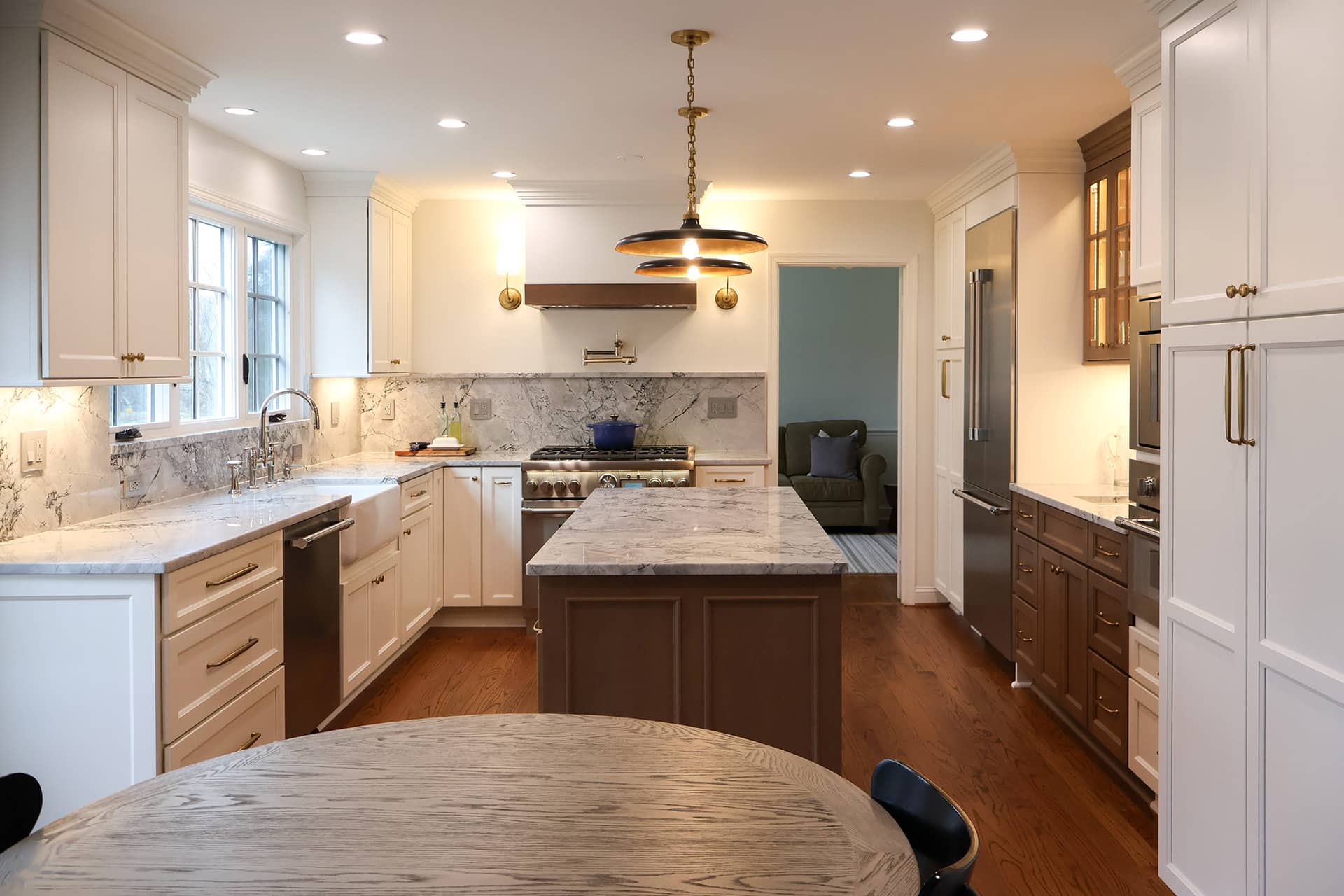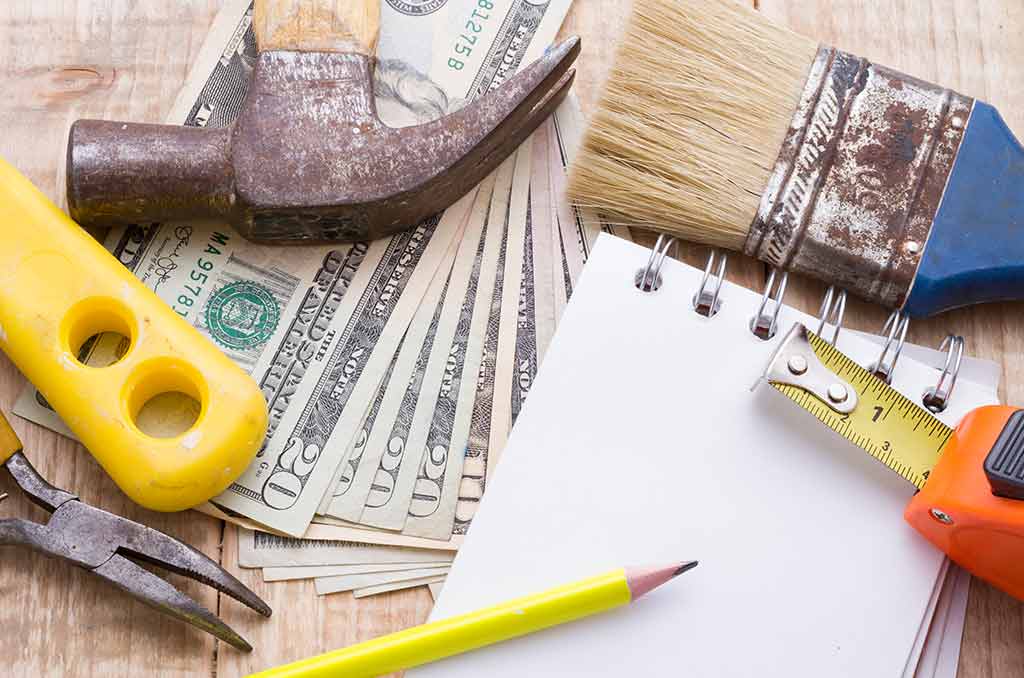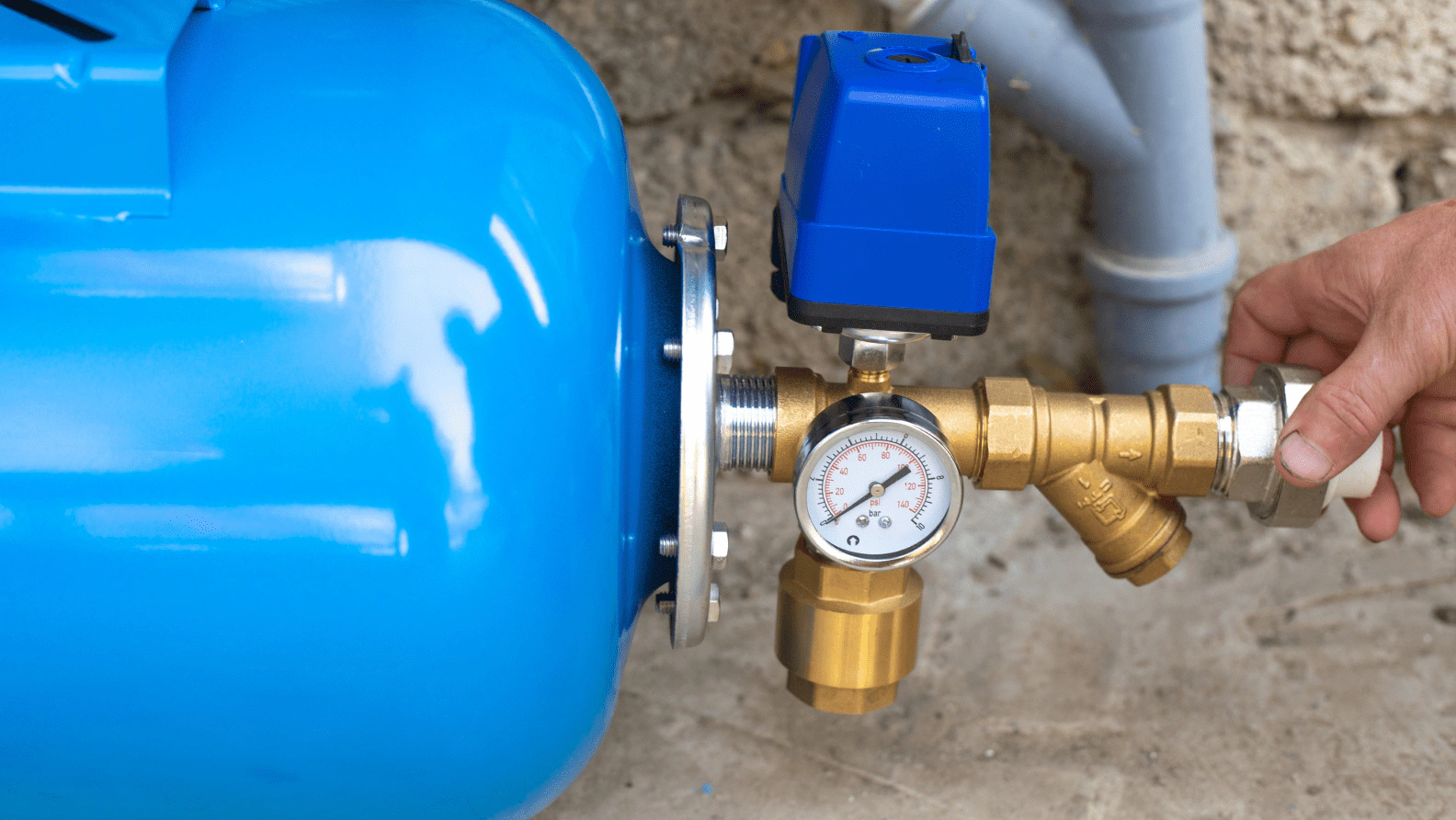What home improvements increase property taxes?

The options for remodeling your house are virtually limitless. Home improvements, such as updating the kitchen or installing a new deck, are frequently viewed as methods to raise the property’s worth and usefulness. But a lot of homeowners don’t know that some upgrades can raise their property taxes. This article will discuss how property taxes are calculated, what kinds of home improvements typically result in higher property taxes, and strategies for controlling these increases.
Comprehending Property Taxes
Understanding how property taxes are determined is crucial before getting into the finer points of home improvements. Local government officials, such as county or city assessors, determine the value of your home, which is the basis for most property tax assessments. Your property tax bill will probably increase in proportion to the value of your home. Property taxes are used by local governments in the US to pay for public services like roads, schools, and law enforcement.
The assessed value of your property is usually multiplied by the local tax rate, sometimes referred to as the “mill rate,” to determine your property taxes. This implies that your tax liability will increase in proportion to the value of your house. Improvements made to your property may result in reassessments, which frequently result in higher taxes. Property tax assessments are typically updated annually or every two years.
How Property Evaluations Operate
Assessments for property taxes are not always simple. The size, condition, location, and improvements made to your property are just a few of the many variables that affect its value. Assessments in some places are based on market value, which means that comparable homes in the neighborhood are used to calculate your home’s worth. A cost approach, which considers the price of replacing or rebuilding the property, might be used in other areas.
This implies that major improvements to a home may lead to a reevaluation, and the value of your house will be modified as a result. Even if you haven’t sold the property in a big way, this could result in higher property taxes.
Home Upgrades That May Raise Real Estate Taxes
Your property taxes are more likely to rise significantly for some home improvements than for others. Larger structural or functional changes are more likely to affect the value of your property than minor cosmetic updates, which might not warrant a reevaluation. The following typical home upgrades may result in higher property taxes:
1. Additions to the house
A home addition is one of the biggest things that can raise property taxes. The impact of home additions on the value of your property will probably be evaluated, regardless of whether you’re adding a new bathroom, bedroom, or any other kind of living space expansion. This is especially true for projects that expand your home’s square footage. Your property tax assessment will probably reflect the higher market value of larger homes.
The extra livable space created by finishing a basement or adding a new master suite, for instance, will probably increase the value of your house. Your property may be reassessed as a result, which would raise your property taxes. Remember that the size of the addition and your local property tax rate will determine how much the tax will increase.
2. Renovations to the Kitchen and Bathroom
For good reason, remodeling the kitchen and bathroom is one of the most common home remodeling projects. Enhancing these high-traffic areas of the house can raise its overall appeal and market value. For example, adding modern design, new cabinetry, and high-end appliances to your kitchen can increase the appeal of your house to potential buyers.
Large-scale renovations, though, may also result in increased property taxes. This is because an assessor may consider a remodeled kitchen or bathroom to be an improvement in the overall value of your house, increasing its perceived value. Installing custom fixtures, hardwood floors, or opulent granite countertops, for instance, can greatly increase the value of your house and, consequently, your property tax assessment.
3. Pools
Your property can benefit greatly from the addition of a swimming pool, which offers a fun and peaceful area for entertainment and relaxation. They may, nevertheless, also contribute to higher property taxes. A swimming pool can raise the overall value of your house and is frequently regarded as a major improvement.
This might not lead to a significant tax increase in places with warmer temperatures, where pools are more prevalent. Adding a pool, however, may have a substantial effect on the value of your home and raise property taxes in areas where pools are less popular or seen as luxury features.
4. Completed Attics and Basements
Making a usable bedroom, family room, or home office out of an unfinished basement or attic can significantly raise the value of your house. Your property may be improved by adding this extra living space, increasing its value and possibly putting it in a higher tax bracket.
This kind of renovation may result in a reevaluation and an increase in your property taxes, depending on the size of the area and the caliber of the completed work. Permits and inspections might also be necessary for this kind of improvement, which could affect your tax assessment.
5. Investing in High-End Materials and Fixtures
The value of your house may increase dramatically if you upgrade it with upscale finishes like custom cabinetry, premium flooring, or opulent appliances. Even though these improvements might not make your house bigger, they can still affect its worth. Generally speaking, homes with luxurious finishes are worth more than those with dated or conventional fixtures.
Because assessors may believe that these improvements raise the overall value of your property, they may result in higher property taxes. Your property tax bill may increase as a result of luxury features, which frequently raise home values.
6. Energy-Saving Improvements
Many homeowners are choosing to upgrade their homes with energy-efficient features as a result of the growing emphasis on sustainability and lowering energy usage. You can reduce your energy costs and benefit the environment by installing solar panels, energy-efficient windows, or improved insulation.
But occasionally, these kinds of upgrades may also result in higher property taxes. For instance, solar panels can be seen as a worthwhile improvement, particularly if they lower the energy expenses of the house. Because they are thought to be environmentally friendly, these energy-efficient upgrades might not be subject to property tax increases in some places. However, in other areas, they might result in a reevaluation of the value of your house and possibly higher taxes.
7. New Siding or Roof
Your home’s appearance and functionality can be significantly enhanced with new siding or a roof, which may raise its assessed value. In addition to improving curb appeal, a new roof could indicate that the property has been well-maintained. Potential buyers may find your house more appealing as a result, and the assessor might consider it a major improvement.
Likewise, installing new siding can enhance your home’s overall appearance and provide weather protection, which could raise its value. These kinds of upgrades may result in higher property taxes, depending on the size of the property and the caliber of the materials used.
8. Constructing a Carport or Garage
Another common home improvement that can raise your property taxes is adding a garage or carport. Your home’s value can be greatly increased by adding a garage, particularly in places where parking is scarce or in high demand. For homeowners, it adds convenience and security, which attracts potential buyers.
Even a carport, which might not be as valuable as a full garage, can occasionally raise the assessed value of your home. This is due to the fact that adding a garage or carport can make your house more livable and appealing overall, which may raise your tax assessment.
9. Hardscaping and Landscaping
Even though hardscaping and landscaping upgrades, like adding patios, outdoor kitchens, new plants, or trees, might not directly increase your home’s square footage, they can still raise its value. Your property’s curb appeal can be greatly enhanced by a beautifully landscaped yard, which could raise its value.
It’s crucial to remember that not all landscaping upgrades will result in higher property taxes. For instance, adding a small garden or planting a few flowers might not cause a reevaluation. However, extensive landscaping tasks, like designing a lavish outdoor living space, may result in a reevaluation and a subsequent rise in your property taxes.
How to Handle Increases in Property Taxes
There are a few ways to handle the situation if you’re worried about how home improvements will affect your property taxes:
1. Examine the local property tax regulations.
It’s a good idea to look into your local property tax laws before beginning any significant home improvement project. Certain improvements, like energy-efficient upgrades or renovations for senior citizens, are exempt from or subject to caps on property tax increases in some places. You can choose which improvements to pursue more wisely if you are aware of the regulations in your area.
2. Speak with a Tax Expert
Speaking with a tax expert can be beneficial if you’re unclear how an improvement will affect your property taxes. They can assist you in making appropriate plans and in understanding how your remodeling projects might affect your property taxes.
3. File a Property Tax Assessment Appeal
You might be able to challenge the assessment if a home improvement results in a large increase in your property taxes. If you think the increase is unjust, you can contest your property tax assessment through a formal process in many places. This procedure could entail proving the value of your property or demonstrating that the assessor’s calculations were flawed.
4. Examine the ROI (return on investment).
It’s crucial to consider the possible return on investment (ROI) before making any big changes. Think about how much your home will be worth after the improvement and whether the higher property taxes will be compensated for by the increase in value. It might be wise to reevaluate or scale back the project if the property tax increase is too significant.
In conclusion
Although home improvements can be a fantastic way to improve your property, it’s vital to think about how they might affect your property taxes. Home additions, kitchen and bathroom remodeling, and adding a garage or pool are examples of major improvements that can raise the value of your house and, consequently, your property tax liability. You can make better decisions about how to improve your house while lowering the possibility of tax increases if you know how property taxes are calculated and carefully plan your improvements. Always seek advice from experts and learn about local regulations to make sure your home renovations fit within your budget.




